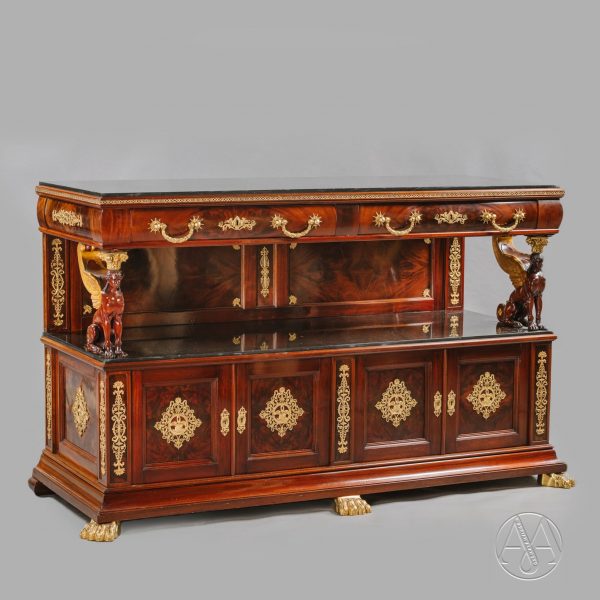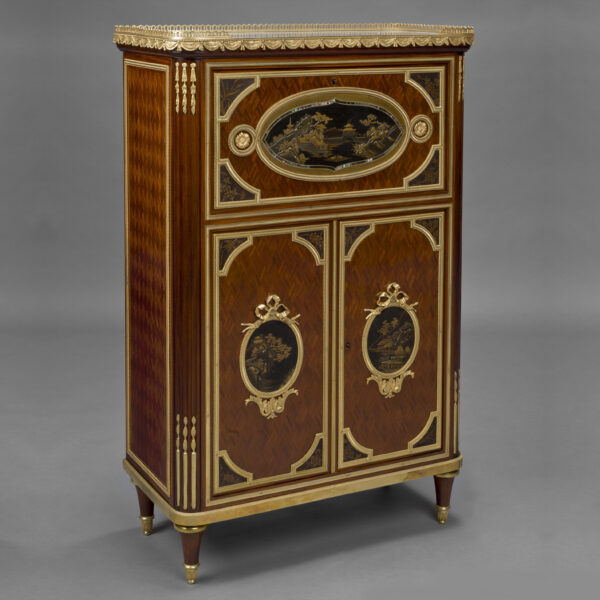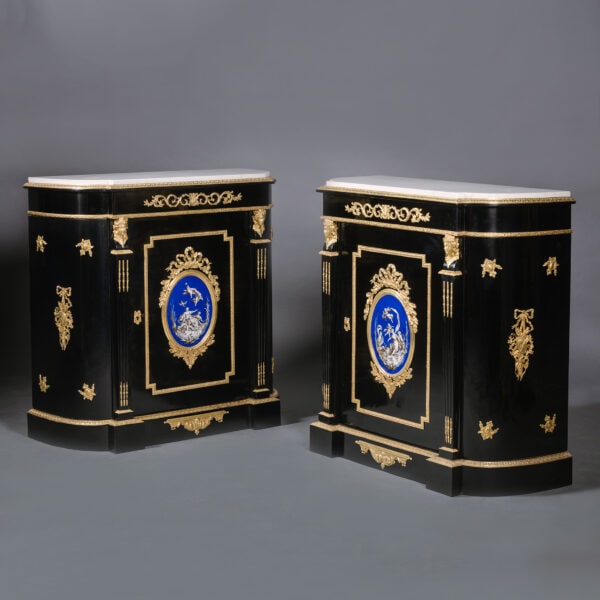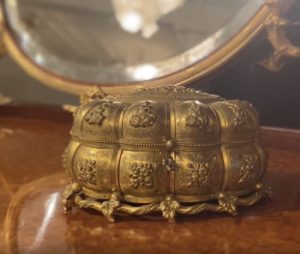Heinrich Pallenberg
A Fine Gilt-Bronze Mounted Marquetry Commode, By Heinrich Pallenberg
£38,000
A Fine Gilt-Bronze Mounted Marquetry Commode, By Heinrich Pallenberg, Cologne. The original marble top is a rare yellow, black and grey brèche marble....
ابعاد
Height: 99 cm (39 in)Width: 158 cm (63 in)
Depth: 58 cm (23 in)
وصف
A Fine Gilt-Bronze Mounted Marquetry Commode, By Heinrich Pallenberg, Cologne.
The original marble top is a rare yellow, black and grey brèche marble. This magnificent chest of drawers is fronted by two deep drawers decorated with superb bois de bout (end cut) floral marquetry composed of precious timbers. The angles are headed by draped lion pelts. The sides with panelled quarter veneers. Raised on cabriole legs with paw feet.
Signed to the locks with maker’s mark: ‘H. Pallenberg Cologne’.
German, Circa 1890.
The distinctive lion-pelt corner mounts are indebted to those which feature prominently to the legs of the bureau de Roi in the Palace of Versailles, which is the most celebrated piece of French furniture and was commissioned by Louis XV from Oeben in 1760 and ultimately completed by Riesener in 1769. The design of this commode is a homage to the maitre ébénistes of the eighteenth century.
تاريخ
حوالي عام 1890
أصل
Germany
متوسط
الزخرفة والبرونز المذهب
توقيع
Signed to the locks with maker's mark: 'H. Pallenberg Cologne'.
The furniture maker Heinrich Pallenberg of Cologne was founded 1827 by Johann Heinrich Pallenberg (1802-1884) who served an apprenticeship as a master carpenter and from 1819 worked in Paris, the artistic centre of the furniture trade. After his father’s death in 1879 Pallenberg was discharged from military service and concentrated on his joinery company, pioneering wood cutting driven by a Göpelwerk and saws powered by steam engines. From 1843, his brother Franz Jakob Pallenberg (1808–1895) continued the now separated veneer cutting business independently, and Johann Heinrich Pallenberg devoted himself to the design and production of high quality modern furniture and interior design.
The business prospered to become the leading supplier to the Prussian royal court, with an enviable client book of aristocrats and industrialists. Even during the revolutionary years of 1848/9, sales slumps were compensated for by orders from elsewhere. In 1861 Johann Heinrich Pallenberg retired from the company and transferred the business to his sons Jakob and Franz who had also been apprenticed in the art of furniture making in Paris. They continued to innovate, and ensure the highest production standards were maintained with the coupling of craftsmanship and the use of state-of-the-art machines. Under the auspices of Jakob and Franz, the firm of Heinrich Pallenberge was awarded an honorary diploma at the Vienna Worlds Fair of 1873.
After the death of his brother Franz (1882), Jakob Pallenberg developed the business into largest furniture factory in Prussia with more than 150 employees. Jakob Pallenberg, like his father, was a great artist and donated a large number of valuable art objects to the Cologne museums. Jakob Pallenberg died in Cairo in March 1900 and in addition to sizeable charitable bequests, left 150,000 marks for the completion of the Pallenberg Hall at the Cologne Museum of Decorative Arts. The Pallenberg Hall was designed by the Berlin artist Melchior Lechter and was first shown at the Paris World Exhibition of 1900, and awarded the Grand Prix as the “spatial Gesamtkunstwerk des Jugendstils” (total work of Art Nouveau). The Pallenberg Hall was destroyed by Allied bombing in September 1943. The company prospered up until the First World War, and was dissolved during the depression of the 1930s before closing altogether in 1959. The highpoint of Pallenberge’s production was during the closing decades of the nineteenth century, as evidenced by superb furniture preserved at Schloss Drachenburg, on the east bank of the Rhine, south of the city of Bonn. Furniture by Jakob Pallenberg is also on display at the Museum of Applied Arts Cologne.
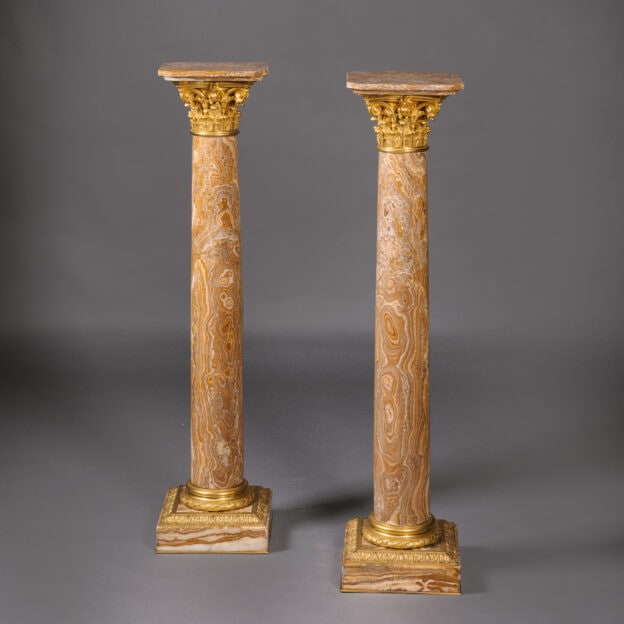
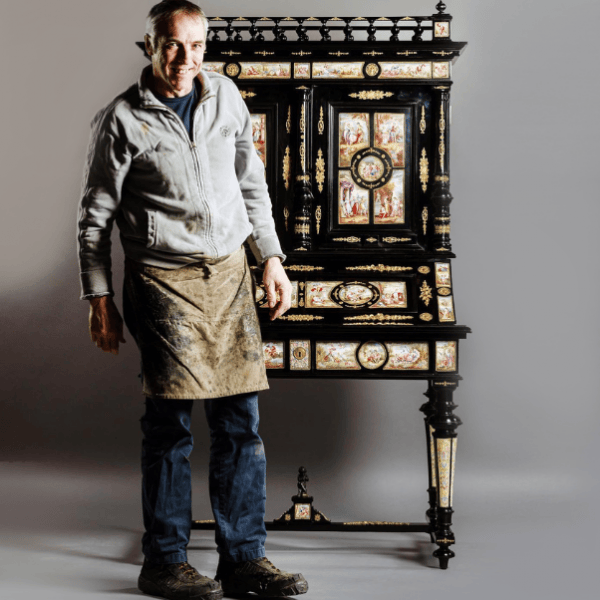
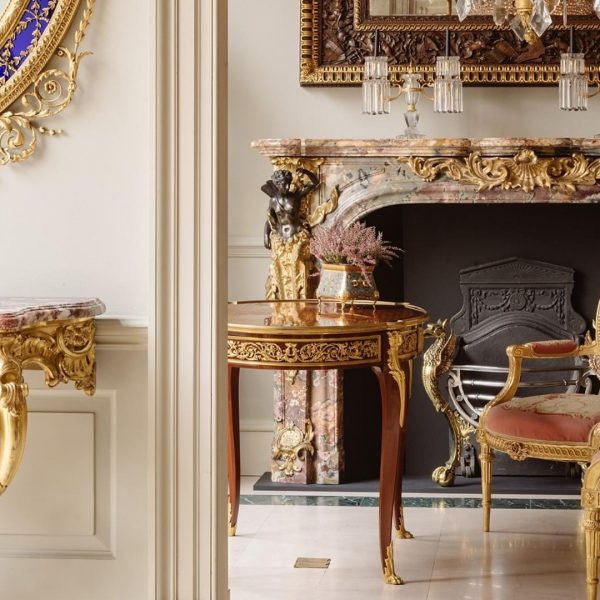
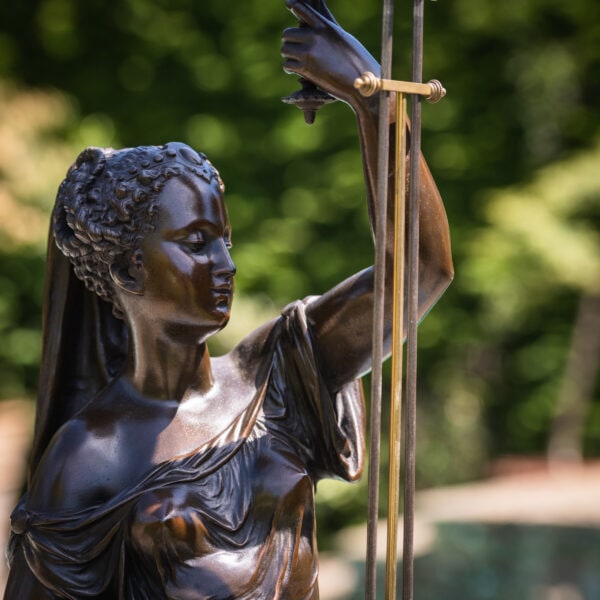
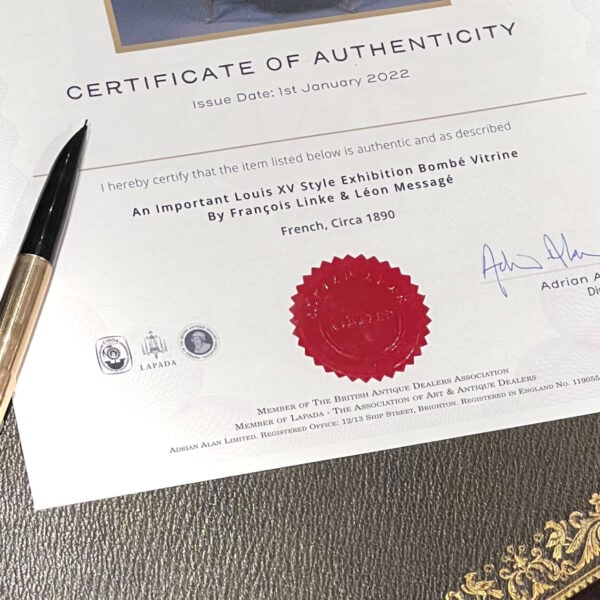

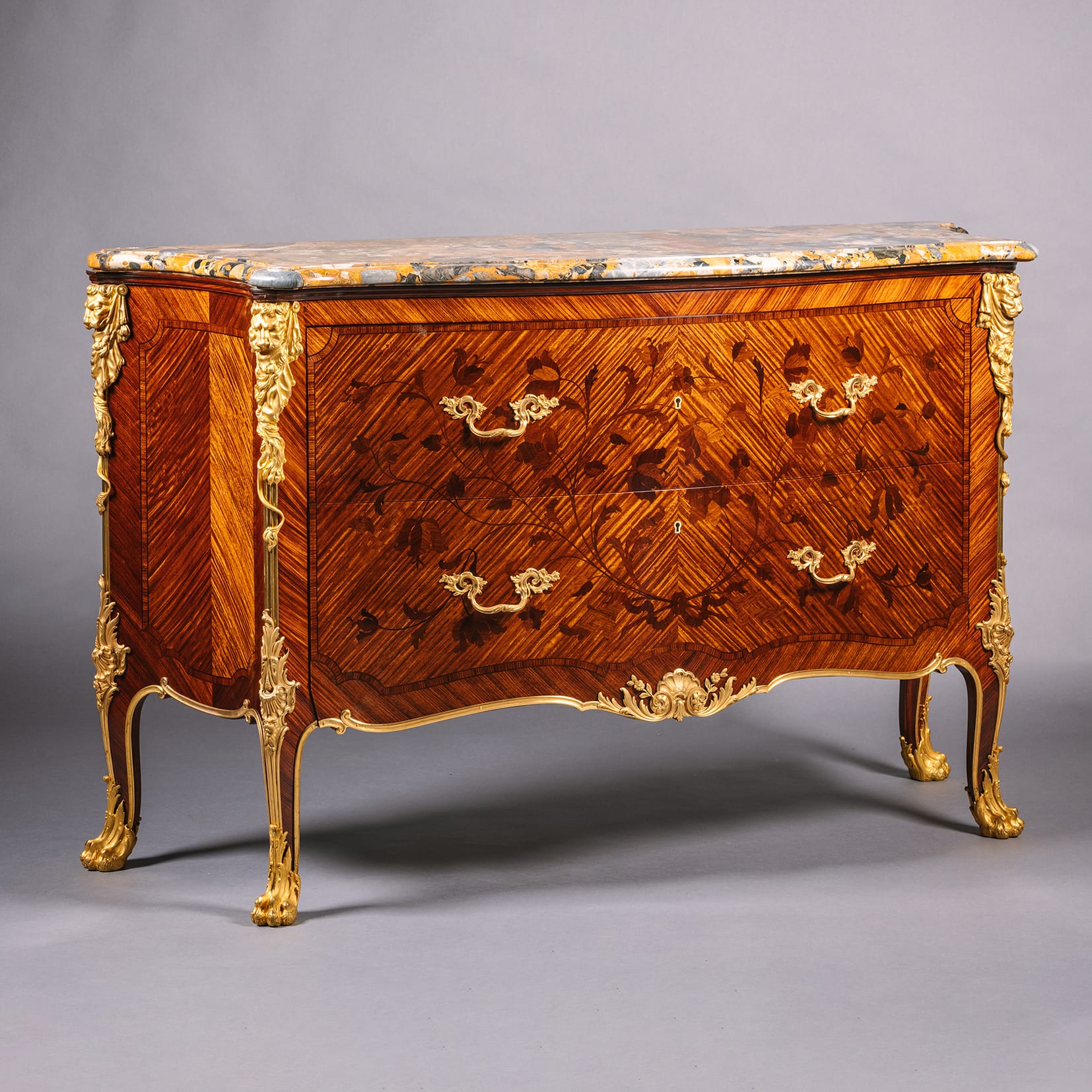
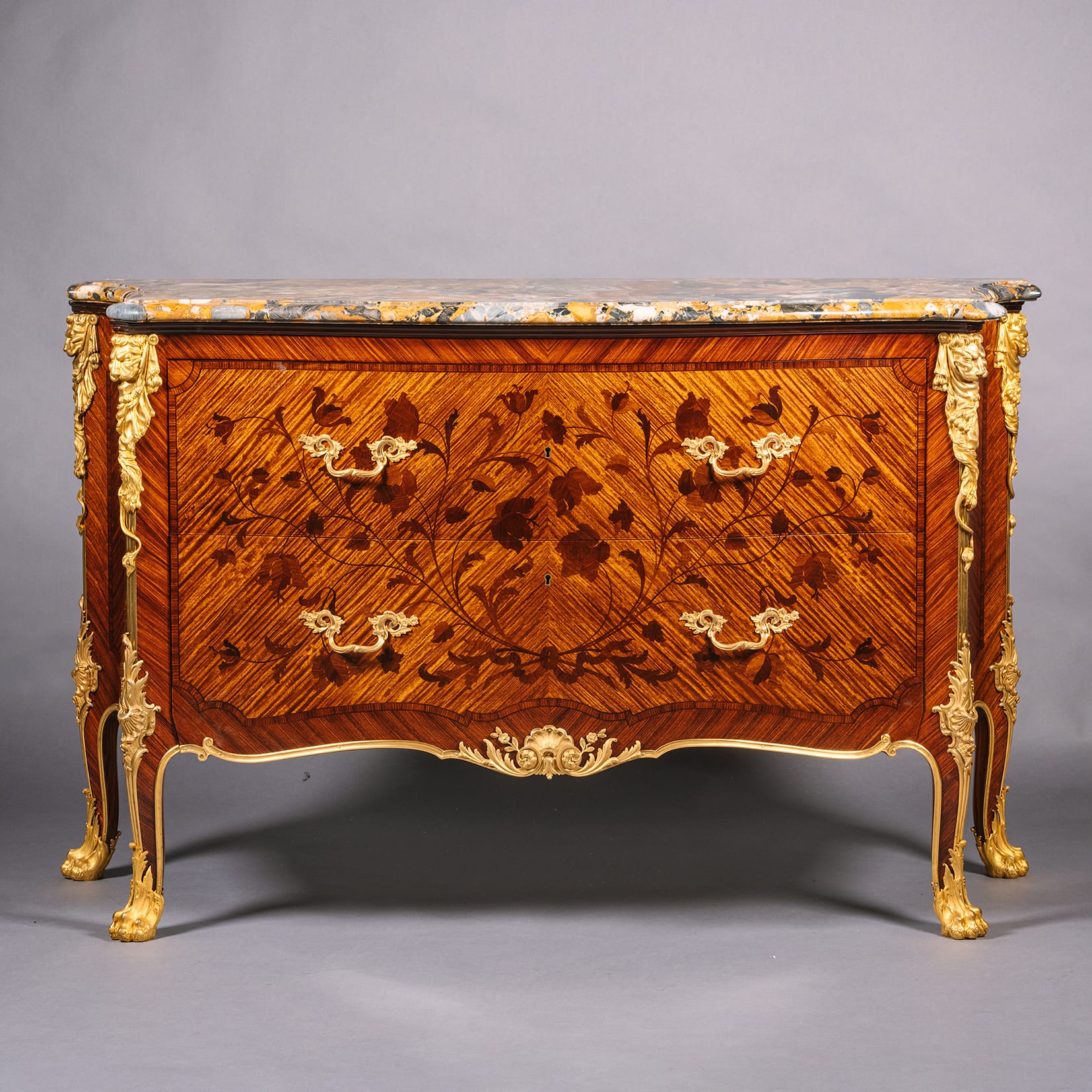
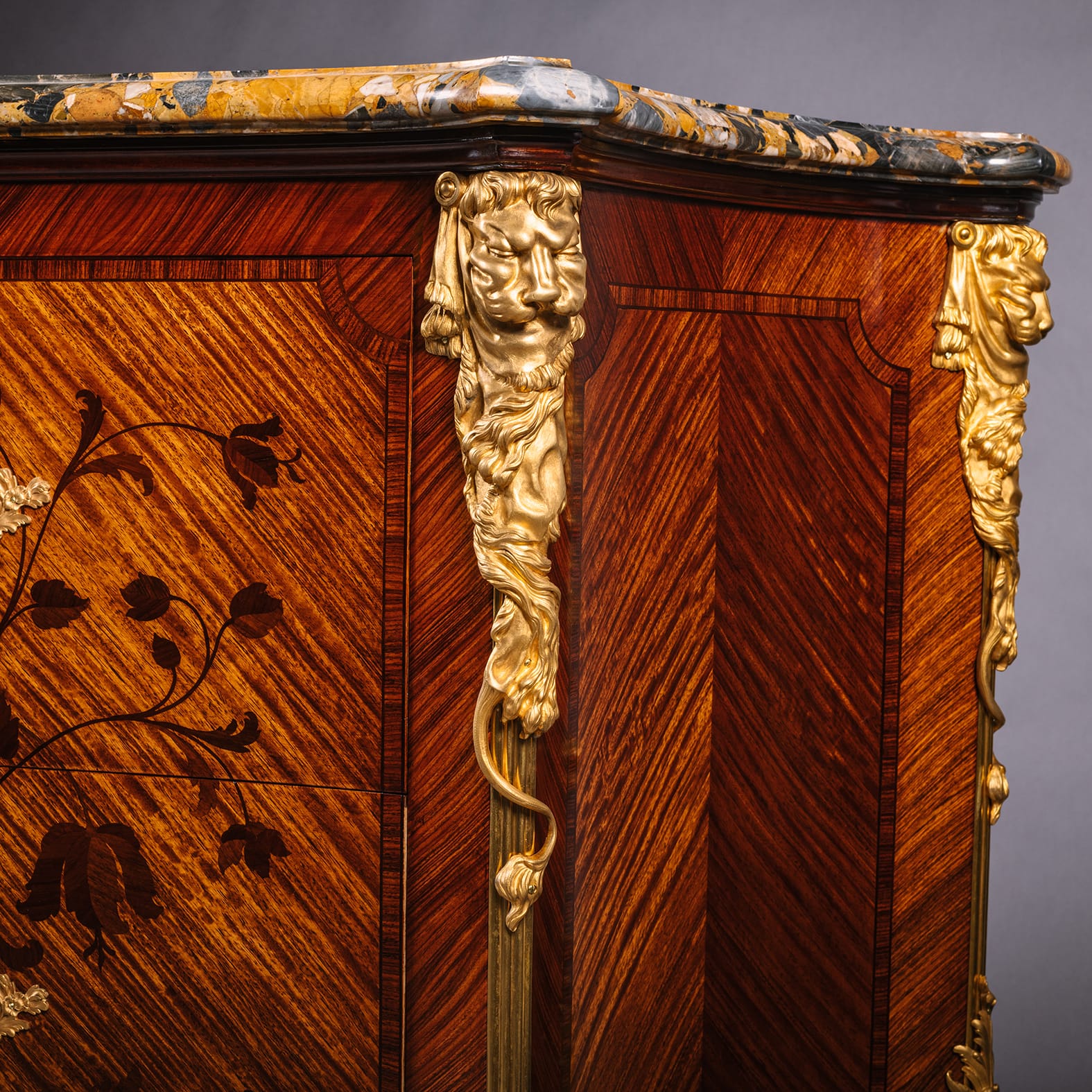
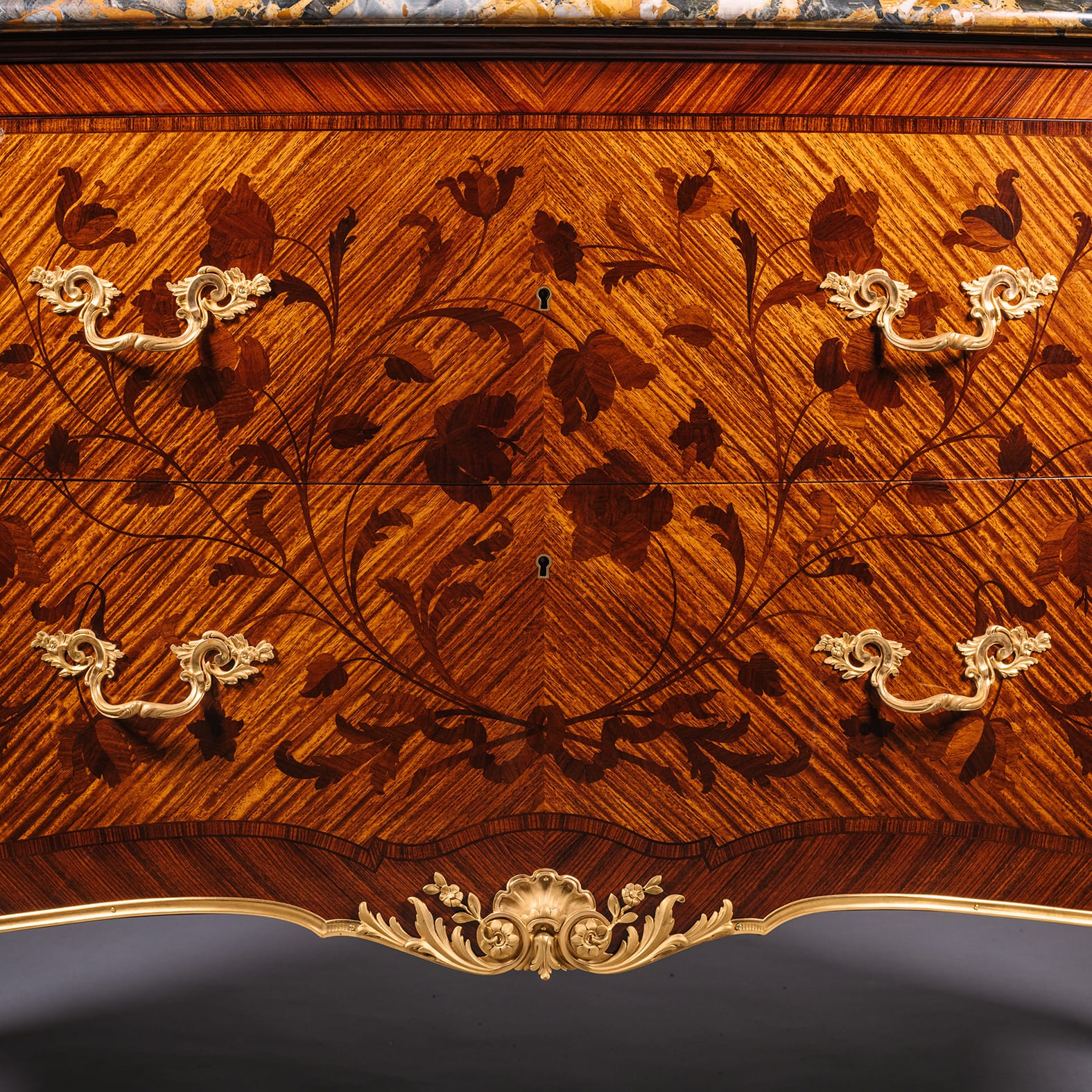

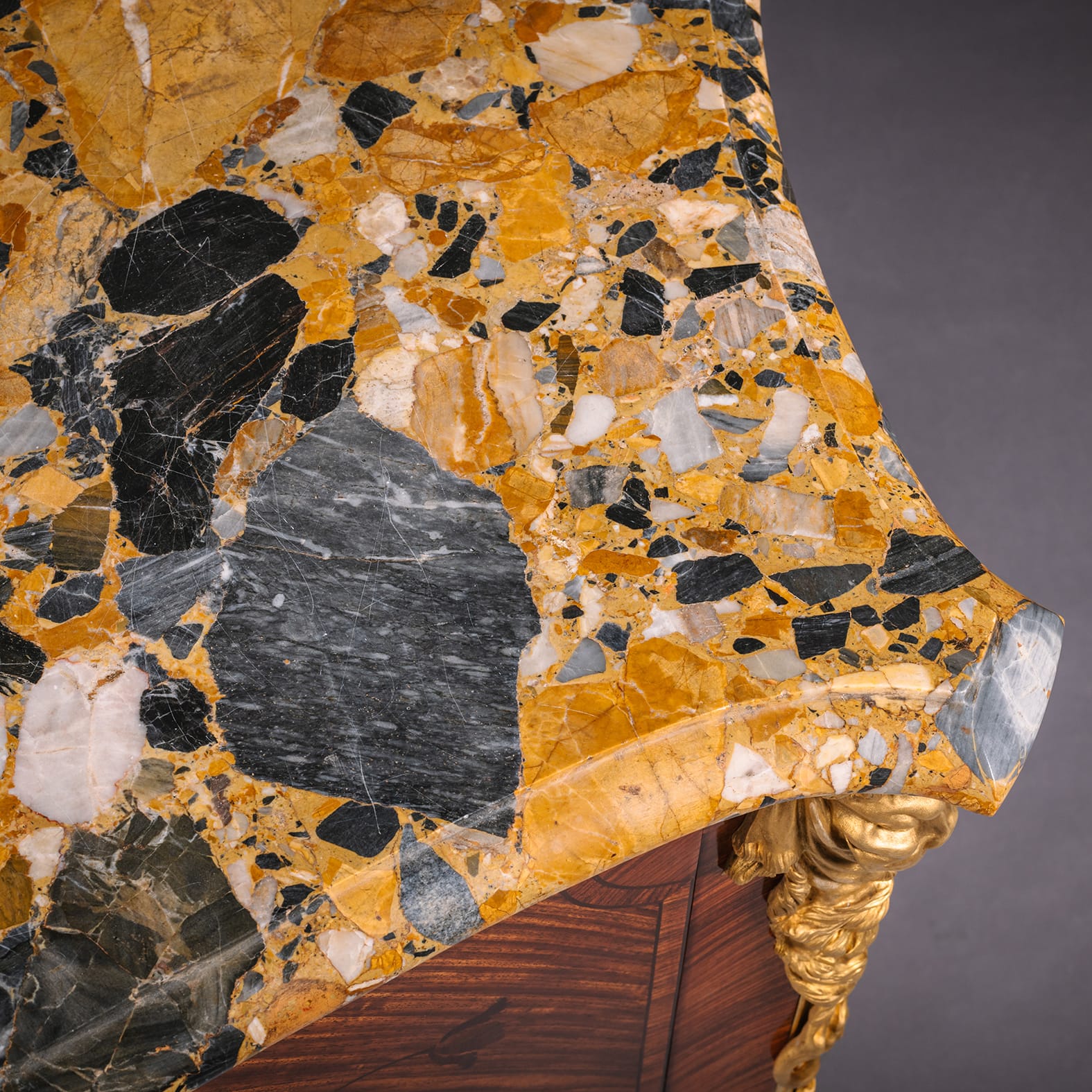
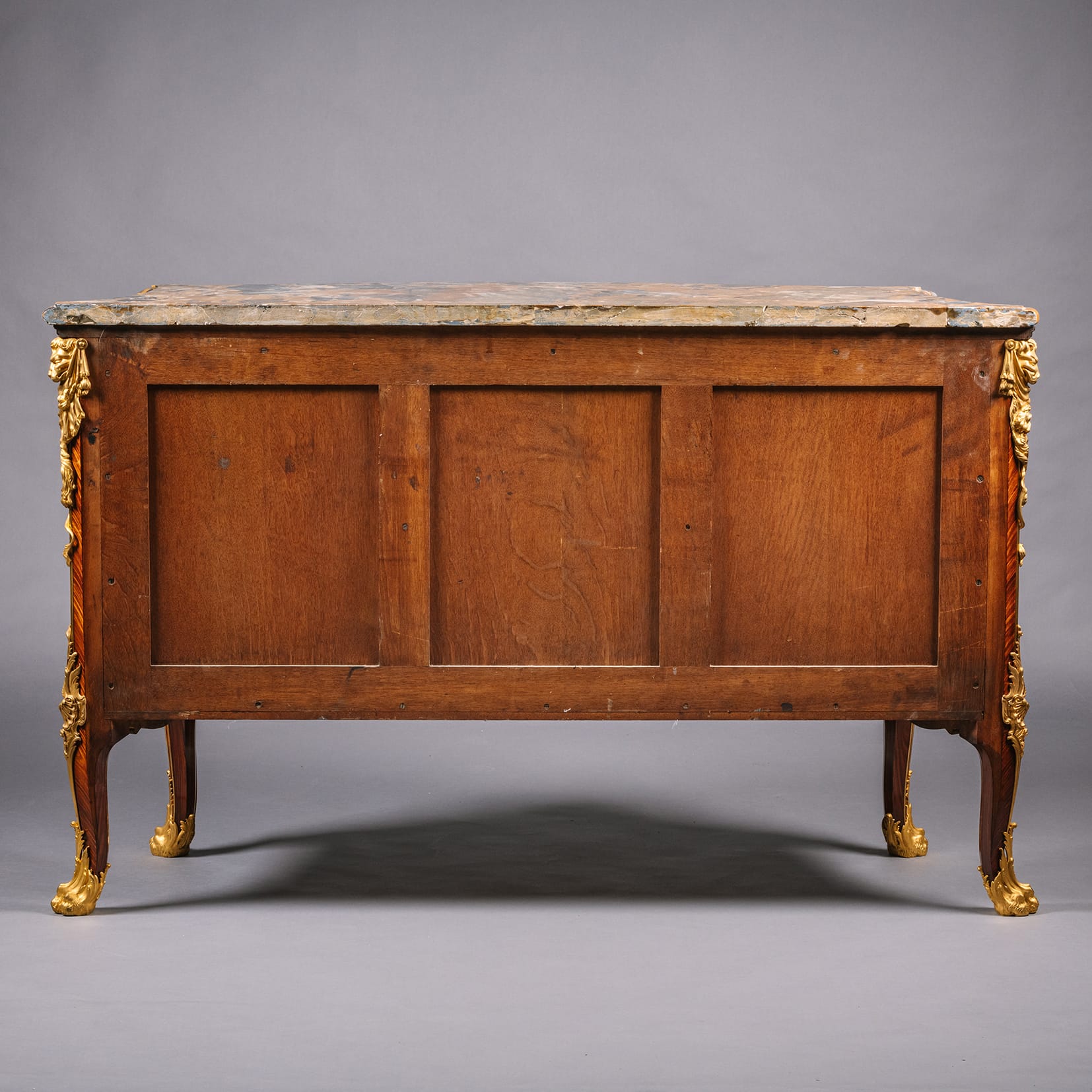
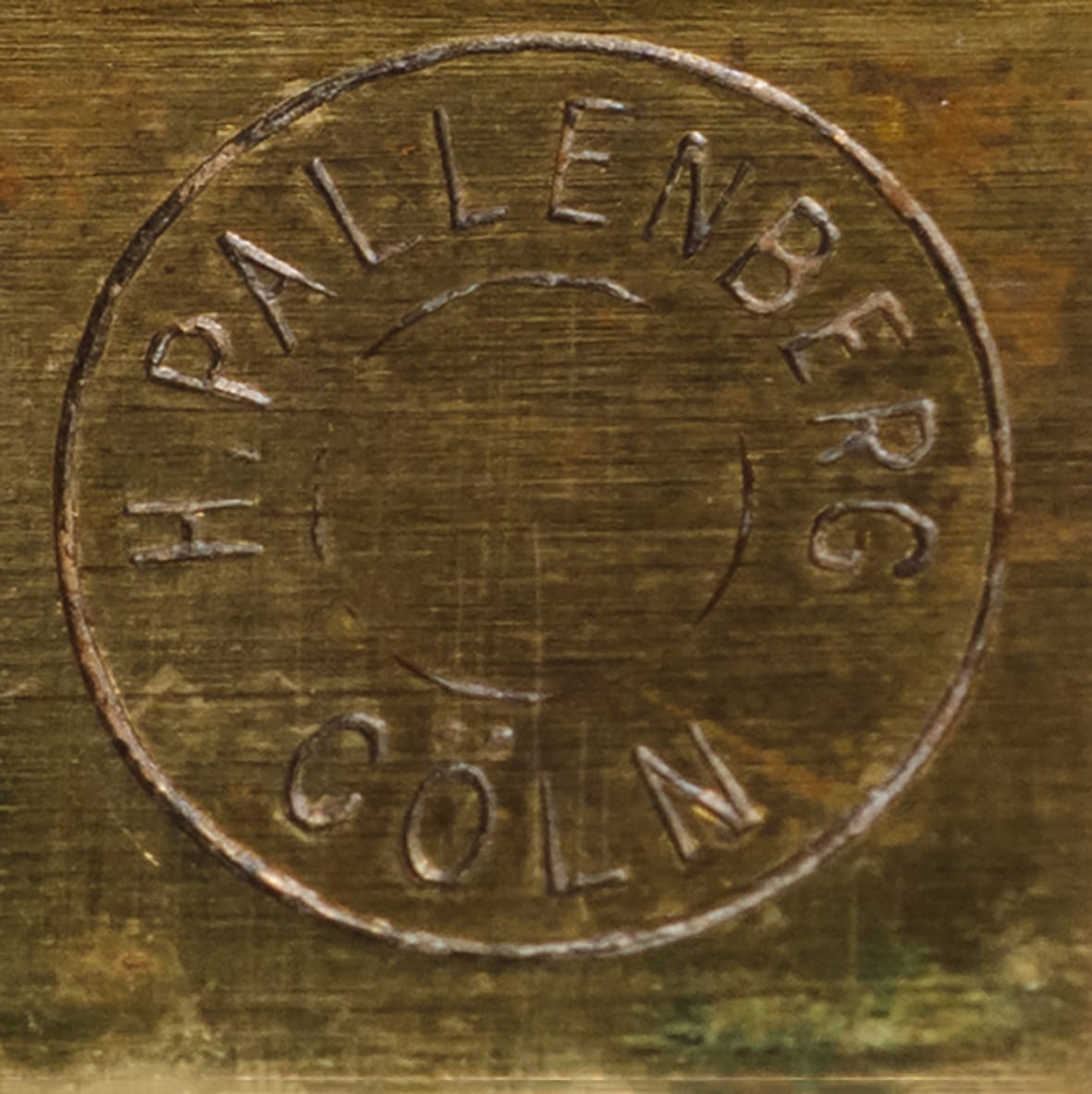

 طبع
طبع